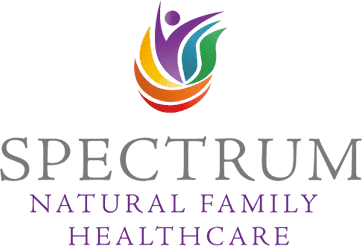What is your health philosophy?
By chiropractor Dr. Annika Jende
Did you know you had one? Most of us don’t, but it reflects in our health choices – even if we don’t know we have choices! So here are some insights that will allow you to get to know your philosophy.
At one end of the extreme, we have
Reactive or Symptom driven health management.
At this level, the body gets treated according to how it feels. It gets attention when it hurts or gets uncomfortable in some way. The sentiment is that health is down to germs, genes and sheer luck. The body is regarded as a tool for pleasure (at best) and as an unpredictable enemy (at worst) that can and attack or strike down completely out of the blue. You are a victim of your body.
Chiropractic: You come in (often when the medicine hasn’t worked) when it hurts and stop coming when it stops hurting.
Substances: It is highly likely that you drink several units of alcohol and use other substances like cigarettes, sugar, fizzy drinks, caffeine and extended screen time every day.
Food: food is eaten for convenience, and there is no sense that food is the body’s fuel.
Water: is for washing.
Typical sentences are: “My grandfather smoked/drank/ate sugar/was obese his whole life and he lived to be 94!” “I know I smoke/drink/eat sugar, but without it life is just not worth living. I might get hit by a bus tomorrow anyway.” “What do you expect at my age!”
The problem with this approach is that by the time symptoms occur, the disease process is quite a way down the track. This is not just spinal issues – for example cancer doesn’t start hurting until it is way down the track.
I am convinced that people who operate at this level have no idea what “feeling good in your body” actually feels like!
The Preventive or Function driven health management:
At this level, you realize that below the level of symptoms, things might be not quite right even if there is no pain or obvious symptoms. You may notice, for example, that you are not be able to move your neck properly to do the reversing. You probably go to the dentist regularly because you know that cavities can happen without hurting; and you have your regular checkups with your GP for cholesterol etc. The body is regarded like a vehicle: something that will work better if it’s checked up regularly, but accidents still happen.
Chiropractic: You come for chiropractic care not just to get out of pain, but to regain your function (such as range of movement), stop coming once that is achieved and then come in for checkups once every 6 months.
Substances: You likely have several units of alcohol on the weekend, and probably during the week on occasion too.
Food: is eaten for pleasure.
Water: You have your 6 glasses a day as recommended.
Typical sentences: “well, I know I eat McDonald’s, but I exercise lots!” “Everything in moderation” “Is my neck out again?!”
The problem with this approach is that once symptoms emerge or tests are positive, the disease process has already started, so it’s not really a preventive approach at all.
The Proactive or Lifestyle driven health management:
You see your health as important in allowing you to do what you value most – parent, work, athletic pursuits, thinking clearly, sleeping better etc. You see healthcare as an investment to a long and healthy life. The body is treated much like a cherished pet: good food, good exercise, lots of water and what else is needed to keep it happy and healthy, so it can be a source of joy. You choose your health team carefully, which is likely to consist of both natural therapies and orthodox practitioners. Should you get unwell, you trust that your body is quite capable of getting well again, and you will decide which practitioners on your team are going to help you get there. You are loath to take prescription medication and will do so only when you have done your research and have decided this is the best course of action.
Chiropractic: You attend for chiropractic care regularly because you know that not only will you have less pain, bounce back from injuries faster and have more freedom of movement, but you know that you can also improve your general health (immune system, breathing, digesting etc) by attending and you bring in your family to give them the best possible chance to be their best and get the most out of life.
Substances: If you drink, it will be an indulgent pleasure of one or two glasses once, maybe twice a week. You aren’t prepared to spend a day hung over, because you will miss out on experiencing that day.
Food: is eaten for joy. And if giving up gluten or dairy is going to make you feel better, you just get on with the business of changing your diet. Your food is fresh and prepared from scratch.
Water: You only drink filtered water, and you drink it with pleasure.
Typical sentences: “I feel so much better now that I am having regular chiropractic care/doing yoga (or Pilates or other exercise)/ taking my supplements”.
The problem with this approach is that it takes more effort and responsibility and probably finances to pursue it.
Spiritual or growth level of health management:
At this level, health is appreciated as something that will define your path in life, the crucial element to allow you to fulfill your highest potential. The body is understood to be a partner in life, with its’ own needs and ways of communicating. When a health issue does present itself, it is seen as an opportunity to learn and grow as a person and to improve your understanding how to take better care of it. The body is seen a source of wisdom.
Chiropractic: You attend regularly, and it is part of your health regime which also includes several other modalities. You love feeling good in your body. You get excited when Graham and Annika have been to yet another seminar, because you know that you can now explore the next wellness frontier.
Substances: You wouldn’t dream of partaking of something that would harm your body – why would you want to harm your precious time-space traveling partner? It’s the only body you’ve got!
Food: Is eaten to nourish body and soul and is organic.
Water: Is blessed before it is drunk.
Typical sentences: “When I got that cold I realized that I had overdone it and just needed to rest. Next time I will make sure I schedule in time to rest and recoup after a yoga weekend.” ” My knee really hurt, but then I realized that I was being inflexible about this issue, and once I was able to see it from their point of view, the pain went away”
The problem with this approach is that, while you have an excellent team that can help you, the ultimate responsibility for your health and wellness rests with you. It’s a lot of effort, but you really know what “feeling good” feels like.
The vast majority of orthodox medicine is symptom driven and function driven (probably because most people are) which essentially amounts to “sickness care”. Integrative GPs like Dr. Draper and all natural therapies practitioners I am aware of are at least at the proactive level (health care!) and a minority are at the spiritual growth level – a supreme example is Louise Hay, of which most of you will have heard.
Keep in mind that it is a continuum, so that you probably fluctuate between two levels depending on stress and whatever else you may have going on in your life. If nothing else, I hope this little article has provided some food for thought to see if you are really happy with your choices.
I would like to acknowledge Dr. Martin Harvey, whose webinar I took part in, for the seeds of this article.
Here is an article on how to ensure your habits support your wellbeing https://spectrumchiropractic.com.au/wellbeing-of-mind-body-and-spirit/

